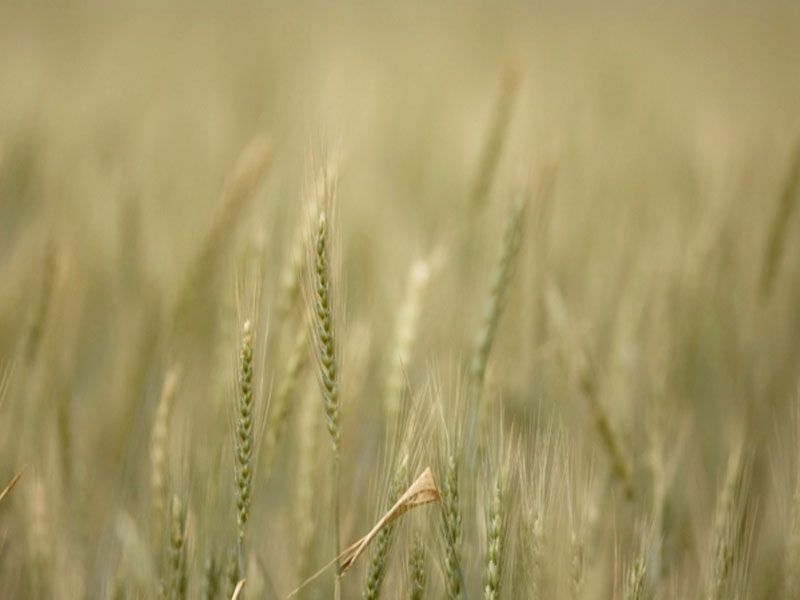UK becomes first to approve Casgevy genetic therapy for blood disorders
SOURCE: HTTPS://INTERESTINGENGINEERING.COM/
NOV 17, 2023
New gene-edited wheat which can be more heavily toasted could make for tastier breakfasts
SOURCE: INEWS.CO.UK
OCT 16, 2021

Breakfasts could become that little bit tastier if trials of a new type of wheat that can be heavily toasted without becoming carcinogenic go according to plan.
While many people find that bread tastes better with a bit more colour on it, it is thought that the prevalent toasting of wheat and other cereal crops by breakfast-cereal manufacturers can make them carcinogenic.
As this poses a (minor) cancer risk, a tight regulatory limit has been placed on the amount of toasting that cereal manufacturers are allowed to carry out – and they have complained that it makes their products taste “insipid”.
Now scientists are working on a new generation of cereal crops – starting with wheat but potentially including rye and oats – that have been gene-edited to make them far less likely to become carcinogenic.
The first trial starts on Monday, when scientists will begin planting 56,700 gene-edited wheat seeds in a field in north Hertfordshire.

Hertfordshire field due to be planted with gene edited wheat. (Rothamsted Research/Graham Shepard)
The editing involves replacing genes that govern certain traits with better-functioning ones from the same species.
In this case, the technique has been used to reduce levels of the naturally occurring amino acid asparagine, which turns into the carcinogenic chemical acrylamide when wheat is processed into bread.
That process increases substantially when the wheat or bread is toasted.
“Breakfast-cereal manufacture includes high temperature processing and toasting. And because [manufacturers] can’t toast it so much, they can’t get so much flavour into it,” said Professor Nigel Halford, of Rothamsted Research, who is in charge of the trial.
“If you give them low-asparagine wheat, they can meet the acrylamide limits without affecting the quality of their product.”
The limits of acrylamide allowed in food has become tougher since 2017 as more has been learned about its dangers.
“Some breakfast-cereal manufacturers have complained that they can’t get the flavour they used to – that their product is insipid – because of complying with the regulations,” Professor Halford said.
“It’s not just wheat – acrylamide is a problem across a lot of cereal grains,” added Sarah Raffan, lead researcher on the trial.
This is the first gene-editing trial since the Government lifted its ban last month and the first of a staple crop ever undertaken in Europe.
If all goes smoothly, low-asparagine bread, breakfast cereals and biscuits could appear on supermarket shelves in about 10 years, researchers say.
Gene editing involves deleting, replacing or boosting genes from the same species to enhance characteristics such as tolerance to drought or resistance to disease.
The ban on Genetic modification (GM), which involves inserting the DNA from one organism into another, will remain for now.
Professor Halford said the lifting of the gene editing ban ends years of disappointment in which revolutionary new techniques such as GM and gene editing were effectively banned across Europe.
“I’ve had a sense of frustration for 25 years. It’s the first positive development in the regulation of agricultural biotech in that time,” he said.
Dr Raffin added: “It’s been quite frustrating seeing environmental changes, increasing pressures, dwindling resources and climate change and having technology that could really help us and not being able to really use it.”
The industry as a whole has also seen a boost from the announcement.
Professor Halford said “the tone of the plant breeders has changed completely” since the government lifted the ban, saying they are now thinking much more in terms of commercial development of gene edited crops rather than just research of the technology’s potential – although it’s still early days.
There is broad consensus among scientists that gene-editing can play a key role in feeding a growing population as the climate changes.
But some conservationists argue that the technique could potentially upset the balance of nature in unforeseen ways, as a crop edited to be resistant to one disease, for example, may encourage another to flourish in its place.
Joanna Lewis, director of policy and strategy at the Soil Association, said: “Changing the DNA of crops and animals to make them temporarily immune to disease or resistant to herbicides is not a long-term solution.
“We should be investing in solutions that deal with the cause of disease, persistent weeds and pests in the first place, including a lack of crop diversity, the decline in beneficial insects, and animal overcrowding.”
LATEST NEWS
Augmented Reality
Hi-tech smart glasses connecting rural and remote aged care residents to clinicians
NOV 20, 2023
WHAT'S TRENDING


Data Science
5 Imaginative Data Science Projects That Can Make Your Portfolio Stand Out
OCT 05, 2022

SOURCE: HTTPS://INTERESTINGENGINEERING.COM/
NOV 17, 2023
SOURCE: HTTPS://GENETICLITERACYPROJECT.ORG/
SEP 05, 2023
SOURCE: HTTPS://WWW.SCIENCEDAILY.COM/
AUG 07, 2023
SOURCE: HTTPS://WWW.SCIENCEDAILY.COM/
JUL 24, 2023
SOURCE: HTTPS://NEWS.MIT.EDU
JUL 20, 2023
SOURCE: BIOSPACE.COM
OCT 27, 2022